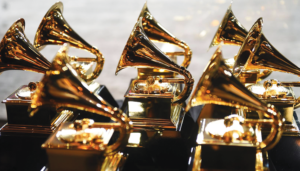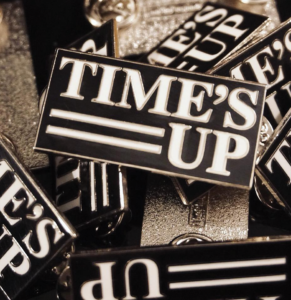Over the past few years, awards shows in the film and music industries have lost credibility among artists and consumers alike because critiques about diversity have plagued both industries. The issue is mainly centered on racial disparities in nominations and award choices.
The Grammys and the Oscars, as the highest profile shows, have faced the most criticism. The response from both shows has largely been considered inadequate, as they still opt to award more commercially mainstream artists and undermine other more culturally relevant artists. While there was hope that 2019 would provide a new direction for the awards, the results haven’t been promising so far.

The 61st annual Grammy Awards took place Sunday, Feb. 10, with one of the most diverse fields of nominees in recent history. However, yet again, the show made bigger headlines for its systemic issues.
After repeatedly snubbing hip-hop acts, the Grammys made history by awarding Childish Gambino both Record and Song of the Year, making him the first hip-hop act to take home both awards. The Atlanta native’s chart-topper “This is America” covered the topic of racial oppression in the United States and made waves for its complementary video. Gambino was not present at the awards show, however, the first time since 1989 that a living nominee was not present to accept one of the general field awards.
The Oscars have also recently been rife with controversy: The 2019 show will be the first in 30 years without a host after organizers failed to replace Kevin Hart after his previous homophobic tweets resurfaced. The Hart incident is not an isolated one for the Oscars; social movements like 2015’s #OscarsSoWhite and 2018’s #MeToo have also called out the awards show for its lack of diversity and issues of sexual harassment across the film industry.
Similar social justice issues have plagued the Grammys, Oscars and other awards shows. These developments raise concerns over how awards shows in general can reverse their diversity issues and stay relevant.
History of Awards Show Backlash
As these scandals have not been addressed, artists have recently spurned the Grammys. In fact, this year’s Grammys gained more notoriety for the artists who declined to perform at the ceremony than those who did: Stars like Kendrick Lamar, Ariana Grande and Drake all declined to perform at this year’s awards for various reasons.
More and more artists are declining to submit their works for consideration at all, seeing the awards show as less relevant than ever.
Chief among these artists is Frank Ocean, who chose not to submit his avant-garde R&B album “Blonde” for Grammy consideration in 2016, citing his belief that the awards show’s infrastructure is outdated.
The Grammys do not “seem to be representing very well for people who come from where I come from, and hold down what I hold down,” Ocean said in an interview with The New York Times in 2016, breaking from his typically media-shy persona.

In subsequent years, rap superstars Drake and J. Cole also refused to submit their albums for consideration.
This trend is in large part because of rap’s overtaking of rock and roll as the most popular genre in the United States, according to USA Today, and the Grammys’ failure to recognize that trend.
Hip-hop and R&B accounted for 25 percent of all music sales in 2017, outpacing every other genre. Nevertheless, only two hip-hop artists have ever won the coveted Grammy for Album of the Year — none since Atlanta duo Outkast took home the award in 2004. Until Childish Gambino’s win in 2019, no hip-hop song had ever won Record or Song of The Year.
The Grammys are also frequently criticized for failing to recognizing deserving works by artists of color in their major categories. In recent years, the ceremony has routinely selected albums from white artists over groundbreaking hip-hop and R&B albums that were cultural phenomena.
Examples include Adele’s 2016 victory over Beyonce’s “Lemonade” and Taylor Swift’s victory over Kendrick Lamar’s “To Pimp a Butterfly” a year earlier. This phenomena even occurs within categories supposedly built for black hip-hop artists; this is epitomized by Macklemore’s victory for both Best New Artist and Best Rap Album over Kendrick Lamar in 2014.
The Oscars have also seemed to be content with avoiding better, more groundbreaking movies for safer selections that have broader support. With this year’s Oscars, some, such as the writers at Variety magazine, have been calling out the awards show for favoring movies that had big box office returns and would be popular enough to generate higher ratings for the awards show.
Movies like “A Star is Born” and “Black Panther” are fan favorites that might bring in more viewers to the awards show than years past, which could potentially boost the Oscars’ appeal. As more and more customers have stopped watching and viewership continues to plummet year after year, awards shows are struggling, leading to decisions like these to let commercial popularity decide some of the candidates and, potentially, the winners.
Changing Relevance in the Arts
Artists and filmmakers alike recognize the loss of cultural relevance awards shows have suffered as media consumption has shifted to online platforms like Netflix. In this way, awards shows are becoming a relic of the past, serving as nothing more than a rubber stamp on what audiences already think is good and rarely showcasing anything new.
The Motion Picture Academy, which is in charge of the nominations and award selections, is particularly seen to represent an antiquated body. The awards are the Academy’s mode to promote itself as opposed to recognizing cinematic brilliance, according to Chad Davis (SFS ’19) who serves as co-president of GIFS, the Georgetown Independent Film Society.
“I think the Oscars are now a way for Hollywood to celebrate itself,” Davis said. “To celebrate the Academy, which is an inherently exclusive group of people.”

The Oscars’ exclusivity and lack of diversity has become a major talking point in recent years. In 2016, #OscarsSoWhite began as a grassroots movement on Twitter to boycott the Oscars after every acting nomination was awarded solely to white actors and actresses for the second-straight year.
“People of color, queer people, women and other marginalized groups have finally found platforms to produce their content on a large scale,” Davis said. “If the Oscars want to stay relevant, they need to redefine ‘The Academy,’ which is overwhelmingly white and male, and start acknowledging films that exist outside of the Hollywood sphere.”
In music, stars are seemingly created out of thin air because of the independence that the internet has granted artists — a contrast to how theaters serve as gatekeepers in film. Some of the biggest artists in hip-hop — and thus in music — in 2018 included Juice WRLD, XXXTentacion and 6ix9ine, all of whom were virtually unknown two years earlier. These artists developed their own celebrity and support through social media virality, eschewing the need for the Grammys to stamp them with their approval.
In the era of streaming and social media, the modern rap landscape is made up primarily of artists who wield influence on social media platforms and transition that fame into high Billboard chart placements. The most important part of their music is no longer the quality of the product, but rather their image and ability to create clicks for online platforms.
How Can Awards Shows Keep Up?
Awards shows are ultimately concerned with appealing to the masses. Sometimes, that curatorial conservatism creates unappealing results for avid fans of film or music or anything in between, even if they sacrifice cultural relevance in the process.
The Oscars’ main problem seems to be about diversity and inclusivity. “The only way for the Oscars to be fixed is for them to stop prioritizing profits over all else, because the system behind the Oscars is chock-full of structural marginalization,” according to Davis.
The Grammys face a similar problem as they fails to balance objective quality. With every Grammy awarded to a commercially popular yet culturally less relevant artist, more and more young people, musicians included, are turning away from the once-revered iconic American event.
As with every awards season, diversity, inclusivity and innovation become major talking points that surround these awards shows. Yet even for those who see the problems inherent within the election process of these works and representation in their respective electing bodies, they cannot ignore the Oscars’ and Grammys’ cultural relevance.
Despite the awards shows’ myriad issues, predictions for awards still dominate the internet and these nights are still largely considered the biggest nights in their fields. Most of the field’s top talent gather under one roof for a night to celebrate the year in their artistic craft in what, to most, remains a ceremony worthy of praise.













